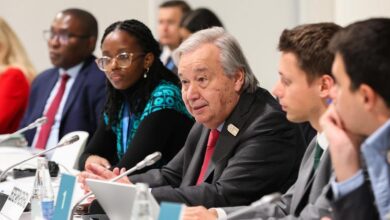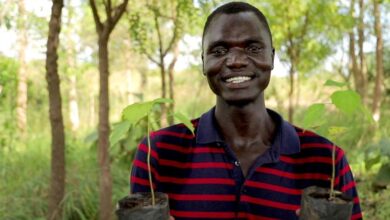Two billion women do not have access to social protection


As the world prepares to mark the occasion International Day for the Eradication of Poverty on October 17, United Nations Women has published a report highlighting the widening gender gap in social protection.
The report shows that an alarming two billion women and girls do not have access to any form of social protection.
Although there has been some progress since 2015, Gender gap in social protection is increasing in most developing regions, showing that recent achievements have disproportionately benefited men. This is jeopardizing progress towards Sustainable Development Goal 5 (SDG 5)
The growing burden of gender-based poverty
The report paints a clear picture of poverty by gender, showing that women and girls are disproportionately represented among the poor at every stage of life, with the greatest disparities seen in their childbearing years.
Women aged 25 to 34 are 25% more likely to live in extreme poverty than men of the same age. Conflict and climate change continue to exacerbate this inequality, making women in vulnerable environments 7.7 times more likely to live in extreme poverty than women in vulnerable environments. women in stable areas.
Furthermore, high inflation rates from 2022 have pushed up food and energy prices, hitting women especially hard. However, of the nearly 1,000 social protection measures adopted by governments across 171 countries in the following months, only 18% targeted women’s economic security, the report revealed.
This highlights gender-specific risks and vulnerabilities that are often overlooked following shocks.
The dismal state of maternity protection
Globally, more than 63% of women still give birth without receiving maternity benefits, with this figure reaching 94% in sub-Saharan Africa.
Lack of financial support during maternity leave not only puts women at an economic disadvantage, but also affects their health and well-being as well as that of their children, perpetuating poverty over many years. generation.
Example of progress
Still, there are promising examples of progress. In Mongolia, maternity leave benefits have been extended to informal workers, such as herders and the self-employed. Maternity leave has also been enhanced to support gender equality in care responsibilities.
In Senegal, the National Health Insurance program has expanded its services to better meet the needs of rural women, with the support of UN Women.
“The potential for social protection for gender equality, resilience and transformation is enormous. To harness this, we need to focus on the dignity, autonomy and empowerment of women and girls at every stage of the process – from policy and program design to delivery and funding ,” Sarah Hendriks, Director of Policy, Programs and Intergovernmental Affairs at UN Women.




